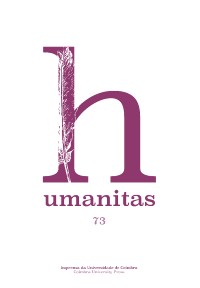Please use this identifier to cite or link to this item:
https://hdl.handle.net/10316.2/46539| DC Field | Value | Language |
|---|---|---|
| dc.contributor.author | Fialho, Maria do Céu | - |
| dc.date.accessioned | 2019-05-07T14:23:59Z | |
| dc.date.accessioned | 2020-10-03T19:28:09Z | - |
| dc.date.available | 2019-05-07T14:23:59Z | |
| dc.date.available | 2020-10-03T19:28:09Z | - |
| dc.date.issued | 2019 | - |
| dc.identifier.issn | 0871-1569 | - |
| dc.identifier.issn | 2183-1718 (PDF) | - |
| dc.identifier.uri | https://hdl.handle.net/10316.2/46539 | - |
| dc.description.abstract | Esta produção de João de Castro Osório tem o alto valor documental de atestar uma presença única: a influência, no teatro português, do eixo Nietzsche / Wagner, num contexto ideológico esperado. Ele constitui o único caso de composição de trilogias dramáticas em Portugal. O teatro de Castro Osório é marcado por um forte componente da retórica ultra-romântica, o que torna difícil a sua encenação. De acordo com a classificação do autor, trata-se de um “Poema dramático”. Se o acontecimento motivador mais próximo de sua composição fosse, talvez, a Guerra Colonial e a defesa da manutenção das colónias, evocando o glorioso passado de Portugal, ao romper os mares e conquistar terras distantes, rapidamente, em toda a Trilogia de Tróia, o autor se demarca desta referência histórica para vôos mais elevados, no seu imaginário estético sobre o mito de Tróia e o seu tratamento épico-homérico. Nas três peças - Helena, Aquiles, Apoteose - a evolução da acção chega a um fim inesperado: o par amoroso Aquiles e Helena caminha, cada vez mais alto, através das chamas da Acrópole de Troia, até uma apoteose: os Deuses de medo são derrotados pelo heróis, em quem a verdadeira Divindade habita – é que o homem heróico é demasiado grande para ser destruído. A Morte e a Vida constituem as duas faces da mesma realidade: a imortalidade. | por |
| dc.description.abstract | This production of João de Castro Osório has the high documental value of attesting a unique presence: that of the influence, in the Portuguese theater, of the Nietzsche / Wagner axis, in an ideological context that is expected. He is the single case of dramatic trilogies composition in Portugal. His theatre is marked by a strong component of ultra-romantic rhetoric, what makes this trilogy difficult to be put on stage. The author classifies it as a ‘Dramatic Poem ‘. If the closest motivating happening of its composition was, perhaps, the Colonial War and the defense of the colonies’ maintenance, evoking the glorious past of Portugal, when breaking the seas and conquering distant lands, quickly, throughout the Trilogy of Troy, the author detaches himself from this historical reference to higher flights, in his aesthetic imaginary concerning the myth of Troy and its epic Homeric treatment. In the three plays – Helena, Aquiles, Apoteose - the evolution of the action arrives to an unexpected end: the loving pair Achilles and Helen goes higher and higher through the flames of Troy acropolis, until an apotheosis: Gods of fear are defeated by the heroes, in whom the truly Divinity inhabits – so, heroic man is too great to be destroyed. Death and Life are the two faces of the same reality: Immortality. | eng |
| dc.language.iso | por | - |
| dc.publisher | Imprensa da Universidade de Coimbra | - |
| dc.rights | open access | - |
| dc.subject | Castro Osório | eng |
| dc.subject | Homer | eng |
| dc.subject | Nietzsche | eng |
| dc.subject | Wagner | eng |
| dc.subject | trilogy | eng |
| dc.subject | Troy | eng |
| dc.subject | Achilles | eng |
| dc.subject | Helen | eng |
| dc.subject | Castro Osório | por |
| dc.subject | Homero | por |
| dc.subject | Nietzsche | por |
| dc.subject | Wagner | por |
| dc.subject | trilogia | por |
| dc.subject | Tróia | por |
| dc.subject | Aquiles | por |
| dc.subject | Helena | por |
| dc.title | A trilogia de Tróia de João de Castro Osório: uma reescrita Nitzscheana do mito de Helena | por |
| dc.title.alternative | The Troy Trilogy of João de Castro Osório: a Nietzschean rewriting of the myth of Helen | por |
| dc.type | article | - |
| uc.publication.collection | Humanitas vol. 73 | - |
| uc.publication.firstPage | 105 | - |
| uc.publication.lastPage | 129 | - |
| uc.publication.location | Coimbra | - |
| uc.publication.journalTitle | Humanitas | - |
| uc.publication.volume | 73 | por |
| dc.identifier.doi | 10.14195/2183-1718_73_6 | - |
| uc.publication.section | Artigos | - |
| uc.publication.orderno | 6 | - |
| uc.publication.area | Artes e Humanidades | - |
| uc.publication.manifest | https://dl.uc.pt/json/iiif/10316.2/46539/262767/manifest?manifest=/json/iiif/10316.2/46539/262767/manifest | - |
| uc.publication.thumbnail | https://dl.uc.pt/retrieve/12063234 | - |
| item.grantfulltext | open | - |
| item.fulltext | With Fulltext | - |
| Appears in Collections: | HVMANITAS | |
Files in This Item:
| File | Description | Size | Format | |
|---|---|---|---|---|
| a_trilogia_de_troia_de_joao_de_castro_osorio.pdf | 661.12 kB | Adobe PDF |  |
Items in DSpace are protected by copyright, with all rights reserved, unless otherwise indicated.
